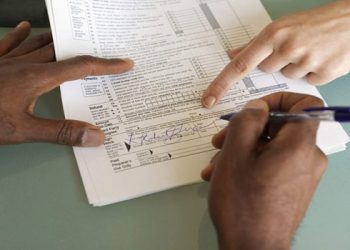In a recent judgement by Mumbai Tribunal Dt. 14.05.2020 in case of Deputy Commissioner of Income-tax v. JSW Ltd. it was held that Where assessee had not earned any tax exempt income in relevant previous year, no disallowance under section 14A could have been made.
Facts of the case:
Assessee did not have any exempt income in the relevant previous year, and yet the Assessing Officer proceeded to make the disallowance under section 14A of the Act, which pertains to disallowance “in respect of expenditure incurred by the assessee in relation to income which does not form part of the total income under this Act.
In the present case, the factual position that has not been disputed is that the investment by the Assessee in the shares of Max India Ltd. is in the form of a strategic investment. Since the business of the Assessee is of holding investments, the interest expenditure must be held to have been incurred for holding and maintaining such investment. The interest expenditure incurred by the Assessee is in relation to such investments which gives rise to income which does not form part of total income.
In the context of the facts enumerated hereinbefore the Delhi High Court answers the question in case of CIT v. Holcim India (P.) Ltd. [2015] 57 taxmann.com 28 framed by holding that the expression ‘does not form part of the total income’ in Section 14A of the envisages that there should be an actual receipt of income, which is not includible in the total income, during the relevant previous year for the purpose of disallowing any expenditure incurred in relation to the said income. In other words, Section 14A will not apply if no exempt income is received or receivable during the relevant previous year.
In view of the above discussions, and in the light of undisputed facts of this case that there was no tax exempt income in the relevant previous year, we hold that no disallowance under section 14A could have been made, on the facts of this case and in the year before us. We, therefore, uphold the plea of the assessee and delete the disallowance of Rs 80,51,200 sustained by the CIT(A). Once we uphold the plea of the assessee that no disallowance under section 14A could have been made on the facts of this case, grievances of the Assessing Officer, against learned CIT(A)’s partially deleting the disallowance under section 14A, become infructuous. Grievance of the assessee is thus upheld and grievances of the Assessing Officer are dismissed as infructuous.
To read full judgement CLICK HERE.
This article is just for information purpose and are personal views of the author. It is always advisable to hire a professional for practical execution or you can mail us. If you need assistance you can ask a question to our expert and get the answer within an hour or post a comment about your views on the post and also subscribe to our newsletter for latest weekly updates.




![[Live] Updates and Tax changes for Budget 2023 | Tax on cryptocurrency | Income tax and GST udpates in Budget 2023 [Download Bill]](https://www.taxontips.com/wp-content/uploads/2023/02/Budget-2023-350x250.webp)








![[Live] Updates and Tax changes for Budget 2023 | Tax on cryptocurrency | Income tax and GST udpates in Budget 2023 [Download Bill]](https://www.taxontips.com/wp-content/uploads/2023/02/Budget-2023-120x86.webp)

